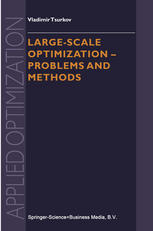

Most ebook files are in PDF format, so you can easily read them using various software such as Foxit Reader or directly on the Google Chrome browser.
Some ebook files are released by publishers in other formats such as .awz, .mobi, .epub, .fb2, etc. You may need to install specific software to read these formats on mobile/PC, such as Calibre.
Please read the tutorial at this link: https://ebookbell.com/faq
We offer FREE conversion to the popular formats you request; however, this may take some time. Therefore, right after payment, please email us, and we will try to provide the service as quickly as possible.
For some exceptional file formats or broken links (if any), please refrain from opening any disputes. Instead, email us first, and we will try to assist within a maximum of 6 hours.
EbookBell Team

4.0
66 reviewsDecomposition methods aim to reduce large-scale problems to simpler problems. This monograph presents selected aspects of the dimension-reduction problem. Exact and approximate aggregations of multidimensional systems are developed and from a known model of input-output balance, aggregation methods are categorized. The issues of loss of accuracy, recovery of original variables (disaggregation), and compatibility conditions are analyzed in detail. The method of iterative aggregation in large-scale problems is studied. For fixed weights, successively simpler aggregated problems are solved and the convergence of their solution to that of the original problem is analyzed. An introduction to block integer programming is considered. Duality theory, which is widely used in continuous block programming, does not work for the integer problem. A survey of alternative methods is presented and special attention is given to combined methods of decomposition. Block problems in which the coupling variables do not enter the binding constraints are studied. These models are worthwhile because they permit a decomposition with respect to primal and dual variables by two-level algorithms instead of three-level algorithms.
Audience: This book is addressed to specialists in operations research, optimization, and optimal control.